#mosquitoes 2017
Explore tagged Tumblr posts
Text
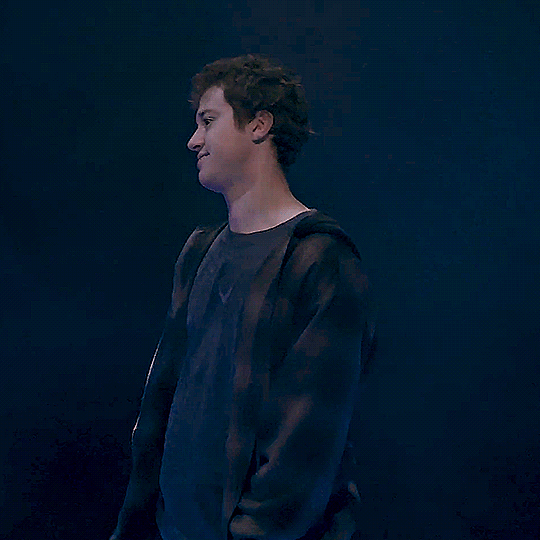


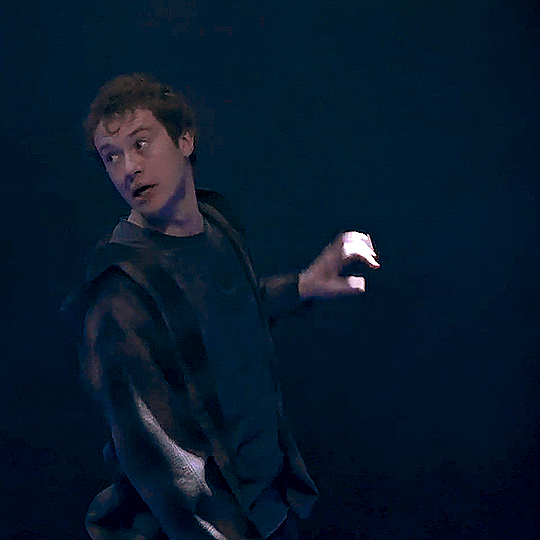
JOSEPH QUINN as LUKE MARBEY | MOSQUITOES (2017)
#joseph quinn#joe quinn#josephquinnedit#joequinnedit#jqedit#stcastedit#luke marbey#mosquitoes 2017#*mygifs#useralii#userbanana#userbaby#userkam#usermaguire#usernaysa#userspacey#idc that they never canonically say he's autistic he is just like me fr so i'm claiming him#a poor misunderstood babby <3 he deserves better
1K notes
·
View notes
Text
when you—w-when, when fuck—

#joseph quinn#mosquitos#jqedit#joe quinn imagine#🫠😮💨#mosquitoes 2017#luke marbey#stop looking at me with them big ol eyes#chocolate button eyes
146 notes
·
View notes
Text



Frecuencia Kirlian (2017)
T1.E2 Los Amos de la Noche
Yo no me considero una persona muy fan de las series y menos si son animadas pero honestamente Frecuencia Kirlian es una de las mejores series argentinas de terror que se crearon y necesita muchisimo mas reconocimiento asique voy a explotar los tags con lo que se me ocurre con tal de darle mas visibilidad, dos besitos
Primera temporada completa de gratis, netflix son unos hijos de puta
kisses kisses
#La frecuencia kirlian#2017#argentina#horror#frame#Cristian Ponce#screencap#serie#animation#horror animation#arg#argie tag#animacion argentina#horror series#horror film#vampire#insects#mosquito#underrated#netflix#vimeo#frecuencia#kirlian#argieblr#argieposting#thriller#suspense#monster#misterio#mistery
4 notes
·
View notes
Text
the face at the end says it all ;_;
#luke sweetheart honeychild #baby deserved a loving GF (or at LEAST a compassionate FRIEND of any gender) #poor thing tried to show his love/ care for a girl by slipping a pamplet about HPV vaccinations into her locker #as you can imagine #that backfired. #he's awkward and gawky and *doing his damn best*
#poor dude didn't deserve to have his dickpick circulated around the school #bonus: he's also anti-smoking 😁 #(he literally gets mad at his aunt for smoking in one scene) #hey #we stan a health-conscious king in this house
(in case anyone *doesn't* know this, yes, this is the production where he--JQ--met and worked with Olivia Colman)

joseph quinn as luke in mosquitoes (2017)
56 notes
·
View notes
Text

Close up photo of a mosquito's wing from Journal of the Entomological Society of British Columbia v.114 (2017). Full text here.
206 notes
·
View notes
Text
Did you ever wonder WHY some people get MORE bug 🦟 bites than others?
Nope, it's NOT your "blood type" or because you have "sweet blood."
Instead: It's got to do with your gut bacteria!
Certain species of mosquitoes actually prefer feeding on humans & show preferences between people...depending on your SKIN MICROBIOTA!
Your skin microbiota is an extension of your "gut microbiome" and is home to over 1000 different species of bacteria.
According to studies (Takken & Verhulst, 2017) our skin microbiome produces several "volatile compounds" that determines if mosquitos attack you!
Also, the LESS 👎 DIVERSE your skin microbiome, the MORE LIKELY you are to be "bug bait" too.
Sweat from people who have MORE diverse skin microbiomes is much less attractive to mosquitos than that from those with less diverse bacterial ecosystems.
Lastly, mosquitoes are attracted to ethanol that your body gives off AFTER you've been 🍷🍺🍾 drinking...eating sugary 🧁 ,dairy 🥛 starchy 🍚 salty 🍟 foods...or using AHA(Alpha Hydroxy Acid) skin products, due to the lactic acid they contain!
- Barbara O'neill 🤔
#pay attention#educate yourselves#educate yourself#knowledge is power#reeducate yourself#reeducate yourselves#think about it#think for yourselves#think for yourself#do your homework#do some research#do your research#do your own research#ask yourself questions#question everything#barbara o'neill#bug bites#mosquito bites#did you know
122 notes
·
View notes
Text

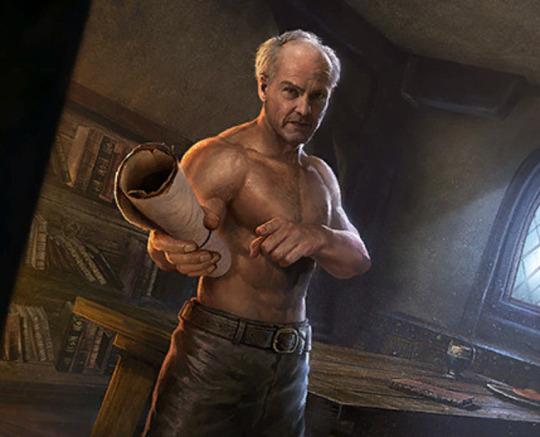
imperialism and science reading list
edited: by popular demand, now with much longer list of books
Of course Katherine McKittrick and Kathryn Yusoff.
People like Achille Mbembe, Pratik Chakrabarti, Rohan Deb Roy, Lizabeth Paravisini-Gebert, and Elizabeth Povinelli have written some “classics” and they track the history/historiography of US/European scientific institutions and their origins in extraction, plantations, race/slavery, etc.
Two articles I’d recommend as a summary/primer:
Zaheer Baber. “The Plants of Empire: Botanic Gardens, Colonial Power and Botanical Knowledge.” Journal of Contemporary Asia. May 2016.
Kathryn Yusoff. “The Inhumanities.” Annals of the American Association of Geographers. 2020.
Then probably:
Irene Peano, Marta Macedo, and Colette Le Petitcorps. “Introduction: Viewing Plantations at the Intersection of Political Ecologies and Multiple Space-Times.” Global Plantations in the Modern World: Sovereignties, Ecologies, Afterlives. 2023.
Sharae Deckard. “Paradise Discourse, Imperialism, and Globalization: Exploiting Eden.” 2010. (Chornological overview of development of knowledge/institutions in relationship with race, slavery, profit as European empires encountered new lands and peoples.)
Gregg Mitman. “Forgotten Paths of Empire: Ecology, Disease, and Commerce in the Making of Liberia’s Plantation Economy.” Environmental History. 2017, (Interesting case study. US corporations were building fruit plantations in Latin America and rubber plantations in West Africa during the 1920s. Medical doctors, researchers, and academics made a strong alliance these corporations to advance their careers and solidify their institutions. By 1914, the director of Harvard’s Department of Tropical Medicine was also simultaneously the director of the Laboratories of the Hospitals of the United Fruit Company, which infamously and brutally occupied Central America. This same Harvard doctor was also a shareholder in rubber plantations, and had a close personal relationship with the Firestone Tire and Rubber Company, which occupied West Africa.)
Elizabeth DeLoughrey. “Globalizing the Routes of Breadfruit and Other Bounties.” 2008. (Case study of how British wealth and industrial development built on botany. Examines Joseph Banks; Kew Gardens; breadfruit; British fear of labor revolts; and the simultaneous colonizing of the Caribbean and the South Pacific.)
Elizabeth DeLoughrey. “Satellite Planetarity and the Ends of the Earth.” 2014. (Indigenous knowledge systems; “nuclear colonialism”; US empire in the Pacific; space/satellites; the twentieth and twenty-first centuries.)
Fahim Amir. “Cloudy Swords.” e-flux Journal #115, February 2021. (”Pest control”; termites; mosquitoes; fear of malaria and other diseases during German colonization of Africa and US occupations of Panama and the wider Caribbean; origins of some US institutions and the evolution of these institutions into colonial, nationalist, and then NGO forms over twentieth century.)
Some of the earlier generalist classic books that explicitly looked at science as a weapon of empires:
Schiebinger’s Plants and Empire: Colonial Bioprospecting in the Atlantic World; Delbourgo’s and Dew’s Science and Empire in the Atlantic World; the anthology Colonial Botany: Science, Commerce, and Politics in the Early Modern World; Canzares-Esquerra’s Nature, Empire, and Nation: Explorations of the History of Science in the Iberian World.
One of the quintessential case studies of science in the service of empire is the British pursuit of quinine and the inoculation of their soldiers and colonial administrators to safeguard against malaria in Africa, India, and Southeast Asia at the height of their power. But there are so many other exemplary cases: Britain trying to domesticate and transplant breadfruit from the South Pacific to the Caribbean to feed laborers to prevent slave uprisings during the age of the Haitian Revolution. British colonial administrators smuggling knowledge of tea cultivation out of China in order to set up tea plantations in Assam. Eugenics, race science, biological essentialism, etc. in the early twentieth century. With my interests, my little corner of exposure/experience has to do mostly with conceptions of space/place; interspecies/multispecies relationships; borderlands and frontiers; Caribbean; Latin America; islands. So, a lot of these recs are focused there. But someone else would have better recs, especially depending on your interests. For example, Chakrabarti writes about history of medicine/healthcare. Paravisini-Gebert about extinction and Caribbean relationship to animals/landscape. Deb Roy focuses on insects and colonial administration in South Asia. Some scholars focus on the historiography and chronological trajectory of “modernity” or “botany” or “universities/academia,”, while some focus on Early Modern Spain or Victorian Britain or twentieth-century United States by region. With so much to cover, that’s why I’d recommend the articles above, since they’re kinda like overviews.Generally I read more from articles, essays, and anthologies, rather than full-length books.
Some other nice articles:
(On my blog, I’ve got excerpts from all of these articles/essays, if you want to search for or read them.)
Katherine McKittrick. “Dear April: The Aesthetics of Black Miscellanea.” Antipode. First published September 2021.
Katherine McKittrick. “Plantation Futures.” Small Axe. 2013.
Antonio Lafuente and Nuria Valverde. “Linnaean Botany and Spanish Imperial Biopolitics.” A chapter in: Colonial Botany: Science, Commerce, and Politics in the Early Modern World. 2004.
Kathleen Susan Murphy. “A Slaving Surgeon’s Collection: The Pursuit of Natural History through the British Slave Trade to Spanish America.” 2019. And also: “The Slave Trade and Natural Science.” In: Oxford Bibliographies in Atlantic History. 2016.
Timothy J. Yamamura. “Fictions of Science, American Orientalism, and the Alien/Asian of Percival Lowell.” 2017.
Elizabeth Bentley. “Between Extinction and Dispossession: A Rhetorical Historiography of the Last Palestinian Crocodile (1870-1935).” 2021.
Pratik Chakrabarti. “Gondwana and the Politics of Deep Past.” Past & Present 242:1. 2019.
Jonathan Saha. “Colonizing elephants: animal agency, undead capital and imperial science in British Burma.” BJHS Themes. British Society for the History of Science. 2017.
Zoe Chadwick. “Perilous plants, botanical monsters, and (reverse) imperialism in fin-de-siecle literature.” The Victorianist: BAVS Postgraduates. 2017.
Dante Furioso: “Sanitary Imperialism.” Jeremy Lee Wolin: “The Finest Immigration Station in the World.” Serubiri Moses. “A Useful Landscape.” Andrew Herscher and Ana Maria Leon. “At the Border of Decolonization.” All from e-flux.
William Voinot-Baron. “Inescapable Temporalities: Chinook Salmon and the Non-Sovereignty of Co-Management in Southwest Alaska.” 2019.
Rohan Deb Roy. “White ants, empire, and entomo-politics in South Asia.” The Historical Journal. 2 October 2019.
Rohan Deb Roy. “Introduction: Nonhuman Empires.” Comparative Studies of South Asia, Africa and the Middle East 35 (1). May 2015.
Lawrence H. Kessler. “Entomology and Empire: Settler Colonial Science and the Campaign for Hawaiian Annexation.” Arcadia (Spring 2017).
Sasha Litvintseva and Beny Wagner. “Monster as Medium: Experiments in Perception in Early Modern Science and Film.” e-flux. March 2021.
Lesley Green. “The Changing of the Gods of Reason: Cecil John Rhodes, Karoo Fracking, and the Decolonizing of the Anthropocene.” e-flux Journal Issue #65. May 2015.
Martin Mahony. “The Enemy is Nature: Military Machines and Technological Bricolage in Britain’s ‘Great Agricultural Experiment.’“ Environment and Society Portal, Arcadia. Spring 2021.
Anna Boswell. “Anamorphic Ecology, or the Return of the Possum.” 2018. And; “Climates of Change: A Tuatara’s-Eye View.”2020. And: “Settler Sanctuaries and the Stoat-Free State." 2017.
Katherine Arnold. “Hydnora Africana: The ‘Hieroglyphic Key’ to Plant Parasitism.” Journal of the History of Ideas - JHI Blog - Dispatches from the Archives. 21 July 2021.
Helen F. Wilson. “Contact zones: Multispecies scholarship through Imperial Eyes.” Environment and Planning. July 2019.
Tom Brooking and Eric Pawson. “Silences of Grass: Retrieving the Role of Pasture Plants in the Development of New Zealand and the British Empire.” The Journal of Imperial and Commonwealth History. August 2007.
Kirsten Greer. “Zoogeography and imperial defence: Tracing the contours of the Neactic region in the temperate North Atlantic, 1838-1880s.” Geoforum Volume 65. October 2015. And: “Geopolitics and the Avian Imperial Archive: The Zoogeography of Region-Making in the Nineteenth-Century British Mediterranean.” Annals of the Association of American Geographers. 2013,
Marco Chivalan Carrillo and Silvia Posocco. “Against Extraction in Guatemala: Multispecies Strategies in Vampiric Times.” International Journal of Postcolonial Studies. April 2020.
Laura Rademaker. “60,000 years is not forever: ‘time revolutions’ and Indigenous pasts.” Postcolonial Studies. September 2021.
Paulo Tavares. “The Geological Imperative: On the Political Ecology of the Amazon’s Deep History.” Architecture in the Anthropocene. Edited by Etienne Turpin. 2013.
Kathryn Yusoff. “Geologic Realism: On the Beach of Geologic Time.” Social Text. 2019. And: “The Anthropocene and Geographies of Geopower.” Handbook on the Geographies of Power. 2018. And: “Climates of sight: Mistaken visbilities, mirages and ‘seeing beyond’ in Antarctica.” In: High Places: Cultural Geographies of Mountains, Ice and Science. 2008. And:“Geosocial Formations and the Anthropocene.” 2017. And: “An Interview with Elizabeth Grosz: Geopower, Inhumanism and the Biopolitical.” 2017.
Mara Dicenta. “The Beavercene: Eradication and Settler-Colonialism in Tierra del Fuego.” Arcadia. Spring 2020.
And then here are some books:
Frontiers of Science: Imperialism and Natural Knowledge in the Gulf South Borderlands, 1500-1850 (Cameron B. Strang); Plants and Empire: Colonial Bioprospecting in the Atlantic World (Londa Schiebinger, 2004);
Africa as a Living Laboratory: Empire, Development, and the Problem of Scientific Knowledge, 1870-1950 (Helen Tilley, 2011); Colonizing Animals: Interspecies Empire in Myanmar (Jonathan Saha); Fluid Geographies: Water, Science and Settler Colonialism in New Mexico (K. Maria D. Lane, 2024); Geopolitics, Culture, and the Scientific Imaginary in Latin America (Edited by del Pilar Blanco and Page, 2020)
Red Coats and Wild Birds: How Military Ornithologists and Migrant Birds Shaped Empire (Kirsten A. Greer); The Black Geographic: Praxis, Resistance, Futurity (Hawthorne and Lewis, 2022); Fugitive Science: Empiricism and Freedom in Early African American Culture (Britt Rusert, 2017)
The Empirical Empire: Spanish Colonial Rule and the Politics of Knowledge (Arndt Brendecke, 2016); In the Museum of Man: Race, Anthropology, and Empire in France, 1850-1960 (Alice Conklin, 2013); Unfreezing the Arctic: Science, Colonialism, and the Transformation of Inuit Lands (Andrew Stuhl)
Anglo-European Science and the Rhetoric of Empire: Malaria, Opium, and British Rule in India, 1756-1895 (Paul Winther); Peoples on Parade: Exhibitions, Empire, and Anthropology in Nineteenth-Century Britain (Sadiah Qureshi, 2011); Practical Matter: Newton’s Science in the Service of Industry and Empire, 1687-1851 (Margaret Jacob and Larry Stewart)
Pasteur’s Empire: Bacteriology and Politics in France, Its Colonies, and the World (Aro Velmet, 2022); Medicine and Empire, 1600-1960 (Pratik Chakrabarti, 2014); Colonial Geography: Race and Space in German East Africa, 1884-1905 (Matthew Unangst, 2022);
The Nature of German Imperialism: Conservation and the Politics of Wildlife in Colonial East Africa (Bernhard Gissibl, 2019); Curious Encounters: Voyaging, Collecting, and Making Knowledge in the Long Eighteenth Century (Edited by Adriana Craciun and Mary Terrall, 2019)
The Ends of Paradise: Race, Extraction, and the Struggle for Black Life in Honduras (Chirstopher A. Loperena, 2022); Mining Language: Racial Thinking, Indigenous Knowledge, and Colonial Metallurgy in the Early Modern Iberian World (Allison Bigelow, 2020); The Herds Shot Round the World: Native Breeds and the British Empire, 1800-1900 (Rebecca J.H. Woods); American Tropics: The Caribbean Roots of Biodiversity Science (Megan Raby, 2017); Producing Mayaland: Colonial Legacies, Urbanization, and the Unfolding of Global Capitalism (Claudia Fonseca Alfaro, 2023); Unnsettling Utopia: The Making and Unmaking of French India (Jessica Namakkal, 2021)
Domingos Alvares, African Healing, and the Intellectual History of the Atlantic World (James Sweet, 2011); A Temperate Empire: Making Climate Change in Early America (Anya Zilberstein, 2016); Educating the Empire: American Teachers and Contested Colonization in the Philippines (Sarah Steinbock-Pratt, 2019); Soundings and Crossings: Doing Science at Sea, 1800-1970 (Edited by Anderson, Rozwadowski, et al, 2016)
Possessing Polynesians: The Science of Settler Colonial Whiteness in Hawai’i and Oceania (Maile Arvin); Overcoming Niagara: Canals, Commerce, and Tourism in the Niagara-Great Lakes Borderland Region, 1792-1837 (Janet Dorothy Larkin, 2018); A Great and Rising Nation: Naval Exploration and Global Empire in the Early US Republic (Michael A. Verney, 2022)
Visible Empire: Botanical Expeditions and Visual Culture in the Hispanic Enlightenment (Daniela Cleichmar, 2012); Tea Environments and Plantation Culture: Imperial Disarray in Eastern India (Arnab Dey, 2022); Drugs on the Page: Pharmacopoeias and Healing Knowledge in the Early Modern Atlantic World (Edited by Crawford and Gabriel, 2019)
Cooling the Tropics: Ice, Indigeneity, and Hawaiian Refreshment (Hi’ilei Kawehipuaakahaopulani Hobart, 2022); In Asian Waters: Oceanic Worlds from Yemen to Yokkohama (Eric Tagliacozzo); Yellow Fever, Race, and Ecology in Nineteenth-Century New Orleans (Urmi Engineer Willoughby, 2017); Turning Land into Capital: Development and Dispossession in the Mekong Region (Edited by Hirsch, et al, 2022); Mining the Borderlands: Industry, Capital, and the Emergence of Engineers in the Southwest Territories, 1855-1910 (Sarah E.M. Grossman, 2018)
Knowing Manchuria: Environments, the Senses, and Natural Knowledge on an Asian Borderland (Ruth Rogaski); Colonial Fantasies, Imperial Realities: Race Science and the Making of Polishness on the Fringes of the German Empire, 1840-1920 (Lenny A. Urena Valerio); Against the Map: The Politics of Geography in Eighteenth-Century Britain (Adam Sills, 2021)
Under Osman’s Tree: The Ottoman Empire, Egypt, and Environmental History (Alan Mikhail, 2017); Imperial Nature: Joseph Hooker and the Practices of Victorian Science (Jim Endersby); Proving Grounds: Militarized Landscapes, Weapons Testing, and the Environmental Impact of U.S. Bases (Edited by Edwin Martini, 2015)
Colonial Botany: Science, Commerce, and Politics in the Early Modern World (Multiple authors, 2007); Space in the Tropics: From Convicts to Rockets in French Guiana (Peter Redfield); Seeds of Empire: Cotton, Slavery, and the Transformation of the Texas Borderlands, 1800-1850 (Andrew Togert, 2015); Dust Bowls of Empire: Imperialism, Environmental Politics, and the Injustice of ‘Green’ Capitalism (Hannah Holleman, 2016); Postnormal Conservation: Botanic Gardens and the Reordering of Biodiversity Governance (Katja Grotzner Neves, 2019)
Botanical Entanglements: Women, Natural Science, and the Arts in Eighteenth-Century England (Anna K. Sagal, 2022); The Platypus and the Mermaid and Other Figments of the Classifying Imagination (Harriet Ritvo); Rubber and the Making of Vietnam: An Ecological History, 1897-1975 (Michitake Aso); A Billion Black Anthropocenes or None (Kathryn Yusoff, 2018); Staple Security: Bread and Wheat in Egypt (Jessica Barnes, 2023); No Wood, No Kingdom: Political Ecology in the English Atlantic (Keith Pluymers); Planting Empire, Cultivating Subjects: British Malaya, 1768-1941 (Lynn Hollen Lees, 2017); Fish, Law, and Colonialism: The Legal Capture of Salmon in British Columbia (Douglas C. Harris, 2001); Everywhen: Australia and the Language of Deep Time (Edited by Ann McGrath, Laura Rademaker, and Jakelin Troy)
Subject Matter: Technology, the Body, and Science on the Anglo-American Frontier, 1500-1676 (Joyce Chaplin, 2001); Mapping the Amazon: The Making and Unmaking of French India (Jessica Namakkal, 2021)
American Lucifers: The Dark History of Artificial Light, 1750-1865 (Jeremy Zallen); Ruling Minds: Psychology in the British Empire (Erik Linstrum, 2016); Lakes and Empires in Macedonian History: Contesting the Water (James Pettifer and Mirancda Vickers, 2021); Inscriptions of Nature: Geology and the Naturalization of Antiquity (Pratik Chakrabarti); Seeds of Control: Japan’s Empire of Forestry in Colonial Korea (David Fedman)
Do Glaciers Listen?: Local Knowledge, Colonial Encounters, and Social Imagination (Julie Cruikshank); The Fishmeal Revolution: The Industrialization of the Humboldt Current Ecosystem (Kristin A. Wintersteen, 2021); The Earth on Show: Fossils and the Poetics of Popular Science, 1802-1856 (Ralph O’Connor); An Imperial Disaster: The Bengal Cyclone of 1876 (Benjamin Kingsbury, 2018); Geographies of City Science: Urban Life and Origin Debates in Late Victorian Dublin (Tanya O’Sullivan, 2019)
American Hegemony and the Postwar Reconstruction of Science in Europe (John Krige, 2006); Carnal Knowledge and Imperial Power: Race and the Intimate in Colonial Rule (Ann Laura Stoler, 2002); Rivers of the Sultan: The Tigris and Euphrates in the Ottoman Empire (Faisal H. Husain, 2021)
The Sanitation of Brazil: Nation, State, and Public Health, 1889-1930 (Gilberto Hochman, 2016); The Imperial Security State: British Colonial Knowledge and Empire-Building in Asia (James Hevia); Japan’s Empire of Birds: Aristocrats, Anglo-Americans, and Transwar Ornithology (Annika A. Culver, 2022)
Moral Ecology of a Forest: The Nature Industry and Maya Post-Conservation (Jose E. Martinez, 2021); Sound Relations: Native Ways of Doing Music History in Alaska (Jessica Bissette Perea, 2021); Citizens and Rulers of the World: The American Child and the Cartographic Pedagogies of Empire (Mashid Mayar); Anthropology and Antihumanism in Imperial Germany (Andrew Zimmerman, 2001)
The Botany of Empire in the Long Eighteenth Century (Multiple authors, 2016); The Nature of Slavery: Environment and Plantation Labor in the Anglo-Atlantic World (Katherine Johnston, 2022); Seeking the American Tropics: South Florida’s Early Naturalists (James A. Kushlan, 2020)
The Colonial Life of Pharmaceuticals: Medicines and Modernity in Vietnam (Laurence Monnais); Quinoa: Food Politics and Agrarian Life in the Andean Highlands (Linda J. Seligmann, 2023) ; Critical Animal Geographies: Politics, intersections and hierarchies in a multispecies world (Edited by Kathryn Gillespie and Rosemary-Claire Collard, 2017); Spawning Modern Fish: Transnational Comparison in the Making of Japanese Salmon (Heather Ann Swanson, 2022); Imperial Visions: Nationalist Imagination and Geographical Expansion in the Russian Far East, 1840-1865 (Mark Bassin, 2000); The Usufructuary Ethos: Power, Politics, and Environment in the Long Eighteenth Century (Erin Drew, 2022)
Intimate Eating: Racialized Spaces and Radical Futures (Anita Mannur, 2022); On the Frontiers of the Indian Ocean World: A History of Lake Tanganyika, 1830-1890 (Philip Gooding, 2022); All Things Harmless, Useful, and Ornamental: Environmental Transformation Through Species Acclimitization, from Colonial Australia to the World (Pete Minard, 2019)
Visions of Nature: How Landscape Photography Shaped Setller Colonialism (Jarrod Hore, 2022); Timber and Forestry in Qing China: Sustaining the Market (Meng Zhang, 2021); The World and All the Things upon It: Native Hawaiian Geographies of Exploration (David A. Chang);
Deep Cut: Science, Power, and the Unbuilt Interoceanic Canal (Christine Keiner); Writing the New World: The Politics of Natural History in the Early Spanish Empire (Mauro Jose Caraccioli); Two Years below the Horn: Operation Tabarin, Field Science, and Antarctic Sovereignty, 1944-1946 (Andrew Taylor, 2017); Mapping Water in Dominica: Enslavement and Environment under Colonialism (Mark W. Hauser, 2021)
To Master the Boundless Sea: The US Navy, the Marine Environment, and the Cartography of Empire (Jason Smith, 2018); Fir and Empire: The Transformation of Forests in Early Modern China (Ian Matthew Miller, 2020); Breeds of Empire: The ‘Invention’ of the Horse in Southeast Asia and Southern Africa 1500-1950 (Sandra Swart and Greg Bankoff, 2007)
Science on the Roof of the World: Empire and the Remaking of the Himalaya (Lachlan Fleetwood, 2022); Cattle Colonialism: An Environmental History of the Conquest of California and Hawai’i (John Ryan Fisher, 2017); Imperial Creatures: Humans and Other Animals in Colonial Singapore, 1819-1942 (Timothy P. Barnard, 2019)
An Ecology of Knowledges: Fear, Love, and Technoscience in Guatemalan Forest Conservation (Micha Rahder, 2020); Empire and Ecology in the Bengal Delta: The Making of Calcutta (Debjani Bhattacharyya, 2018); Imperial Bodies in London: Empire, Mobility, and the Making of British Medicine, 1880-1914 (Kristen Hussey, 2021)
Biotic Borders: Transpacific Plant and Insect Migration and the Rise of Anti-Asian Racism in America, 1890-1950 (Jeannie N. Shinozuka); Coral Empire: Underwater Oceans, Colonial Tropics, Visual Modernity (Ann Elias, 2019); Hunting Africa: British Sport, African Knowledge and the Nature of Empire (Angela Thompsell, 2015)
#multispecies#ecologies#tidalectics#geographic imaginaries#book recommendations#reading recommendations#reading list
424 notes
·
View notes
Text
Thank you again for another great year allowing us to share original photographers with you. We will be taking a break and return January 8th. In the meantime we have set up a queue filled with photos from our past featured blogs this year. If you are looking for new blogs to follow, please have a look at the list below. We have listed a general description of the types of photos each blog posts, so it will be easier for you to find the ones you like. And of course applications are still open during our break. Hope to see you all again in 2024. Happy holidays and much love from all of us at LEN.
January 341 @cissaking (landscape) 342 @foliorumviridis (forests, landscape) 343 @rchrgd (nature, forests) 344 @marljin (forests)
February 345 @highways-are-liminal-spaces (landscape, animals) 346 @dk-thrive (landscape, quotes) 347 @fotozeiger (landscape) 348 @alyaly (landscape, flowers)
March 349 @joeswildlifephotos (animals, landscape) 350 @silver-frog (landscape, urban) 351 @bedr-focus (landscape, urban, animals) 352 @alli-takes-photos (nature, landscape, urban)
April 353 @thethingsiveseen-photography (landscape, animals, flowers) 354 @rock-cedar-mosquito (forests, landscape) 355 @zedensposts (landscape, animals) 356 @whitneybarkman (nature, forests)
May 357 @renmoldovan (landscape, animals) 358 @gettinglostisnotawasteoftime (landscape, forests) 359 @nwalthall (landscape, flowers, portrait) 360 @ivacunja (landscape) 361 @moer-koffie (flowers, animals)
June 362 @lbk-photography (landscape) 363 @stillwater67 (landscape, urban) 364 @desomnis (landscape, urban) 365 @tomo8455 (flowers, animals, landscape)
July 366 @bluebelly-sun-serpentine (nature, landscape) 367 @carmen-art (landscape) 368 @thomaswaynewolf (landscape) 369 @birdmemorandum (birds) 370 @thecorpsofrediscovery (landscape, urban)
August 371 @orofeaiel (forests, fungi, animals) 372 @sugiichi (birds) 373 @oscar-out-of-a-suitcase (landscape, urban) 374 @pela-schmidt (landscape)
September 375 @andulkaphoto (nature, urban) 376 @orendarling (landscape, urban) 377 @thomas--bombadil (birds) 378 @kiteknots (nature, forests)
October 379 @differentharmonywasteland (nature) 380 @zocher (landscape, flowers) 381 @mbhfphotos (nature, fungi, forests) 382 @wild-e-eep (nature, fungi, animals) 383 @franz-bauch-foto (forests)
November 384 @vnvnationfan (landscape, flowers) 385 @sssnapspics (nature, animals) 386 @ohlsdorf-cemetery (nature, forests, cemeteries) 387 @flippantsmeagol (landscape)
December 388 @coenderuiter (landscape, forests) 389 @opdrie (landscape, forests)
2022 Featured Blogs | 2021 Featured Blogs 2020 Featured Blogs | 2019 Featured Blogs 2018 Featured Blogs | 2017 Featured Blogs 2016 Featured Blogs
#photographers on tumblr#original photographers#nature#landscape#original photography#nature photography#landscape photography#featured blog#photography#landscape exposure network#year end#2023
121 notes
·
View notes
Text
May 2024 Reads

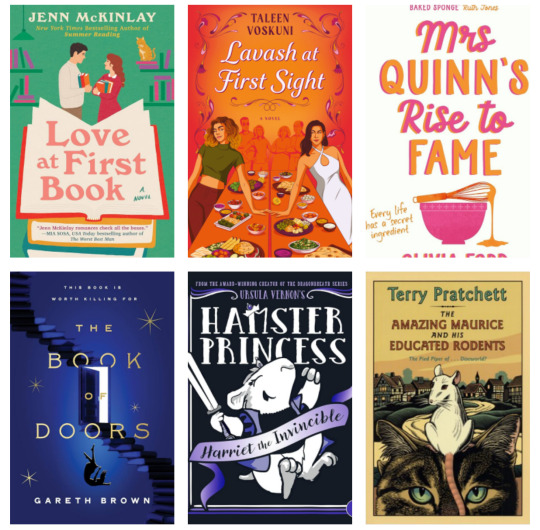
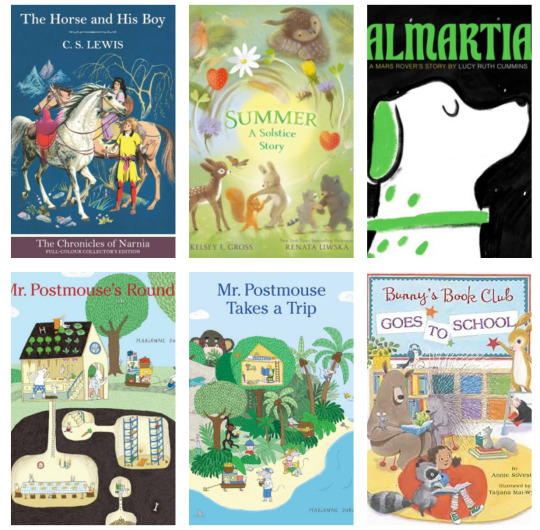
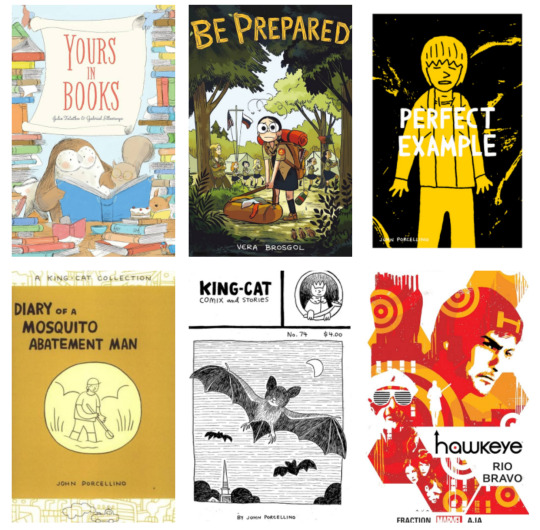
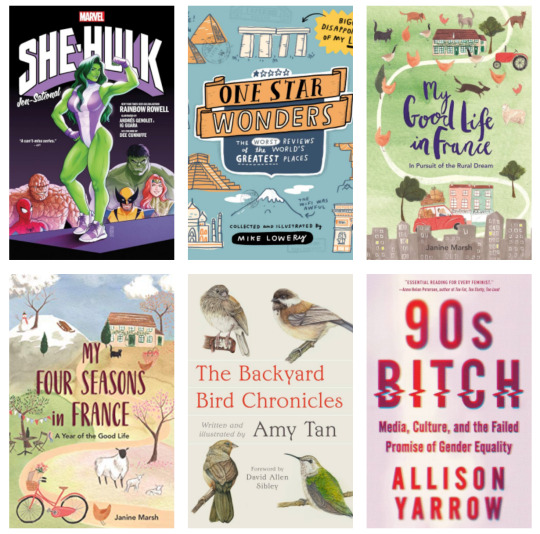
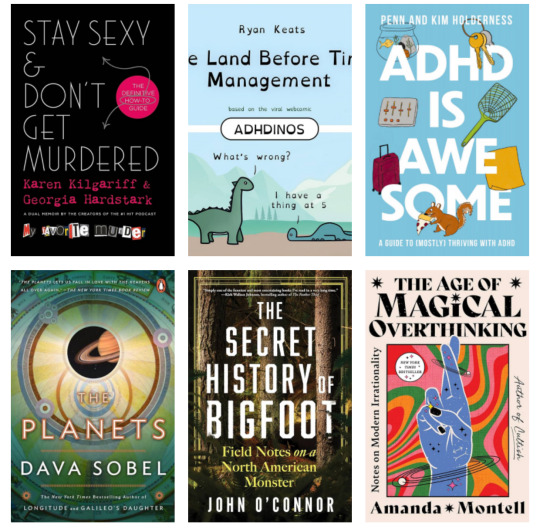
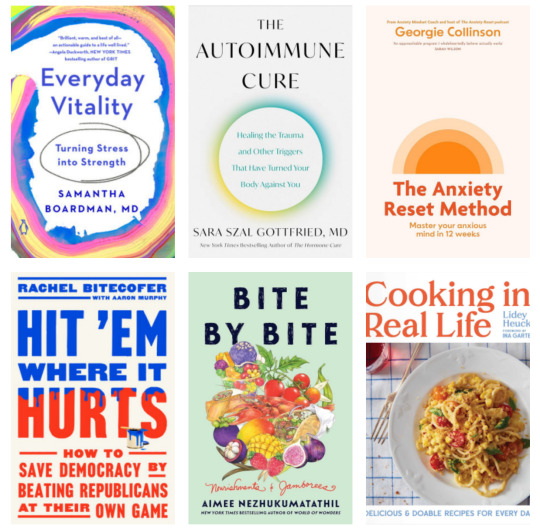

Ready or Not - Cara Bastone
Playing for Keeps - Jennifer Dugan
Right on Cue - Falon Ballard
Truly, Madly, Deeply - Alexandria Bellefleur
Happily Never After - Lynn Painter
Check & Mate - Ali Hazelwood
Love at First Book - Jen McKinlay
Lavash at First Sight - Taleen Vaskuni
Mrs. Quinn's Rise to Fame - Olivia Ford
The Book of Doors - Gareth Brown
Harriet the Invincible - Ursula Vernon
The Amazing Maurice and His Educated Rodents - Terry Pratchett
The Horse and His Boy - C.S. Lewis
Summer: A Solstice Story - Kelsey E. Gross
Dalmartian - Lucy Ruth Cummins
Mr. Postmouse's Rounds - Marianne Dubuc
Mr. Postmouse Takes a Trip - Marianne Dubuc
Bunny's Book Club Goes to School - Annie Silvestro
Yours in Books - Julie Falatko
Be Prepared - Vera Brosgol
Perfect Example - John Porcellino
Diary of a Mosquito Abatement Man - John Porcellino
King-Cat Comics and Stories #74 - John Porcellino
Hawkeye, Volume 4 - Matt Fraction
She-Hulk, Volume 4 - Rainbow Rowell
One Star Wonders - Mike Lowery
My Good Life in France - Janine Marsh
My Four Seasons in France - Janine Marsh
The Backyard Bird Chronicles - Amy Tan
90s Bitch - Allison Yarrow
Stay Sexy & Don't Get Murdered - Karen Kilgariff, Georgia Hardstark
The Land Before Time Management: ADHDinos - Ryan Keats
ADHD is Awesome - Penn Holderness, Kim Holderness
The Planets - Dave Sobel
The Secret History of Bigfoot - John O'Connor
The Age of Magical Overthinking - Amanda Montell
Everyday Vitality - Samantha Boardman
The Autoimmune Cure - Sara Gottfried
The Anxiety Reset Method - Georgie Collinson
Hit 'Em Where It Hurts - Rachel Bitecofer
Bite by Bite - Aimee Nezhukumatathil
Cooking in Real Life - Lidey Heuck
Seriously So Good - Carissa Stanton
Bold = Highly Recommend
Italics = Worth It
Crossed Out = Nope Thoughts: Favorite fiction of the month: Ready or Not, which takes a whole bunch of tropes I don't love, but makes me love them. Loved the audiobook narrator, as well.
Favorite non-fiction of the month: Bite by Bite, which is a love letter to food and family. Check it out if you like Ross Gay.
Goodreads Goal: 192/200 2017 Reads | 2018 Reads | 2019 Reads | 2020 Reads | 2021 Reads | 2022 Reads | 2023 Reads | 2024 Reads
27 notes
·
View notes
Text
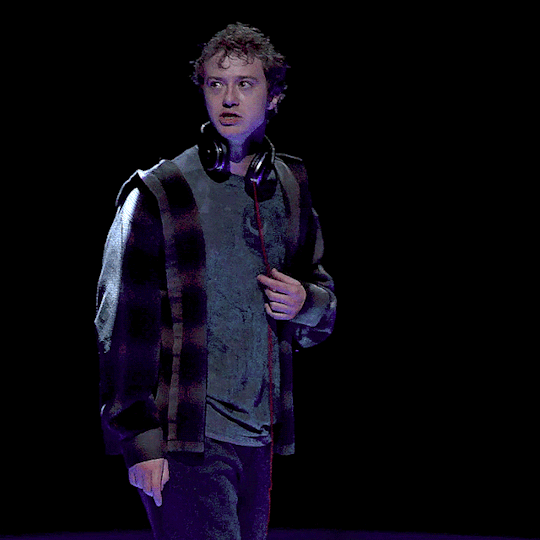
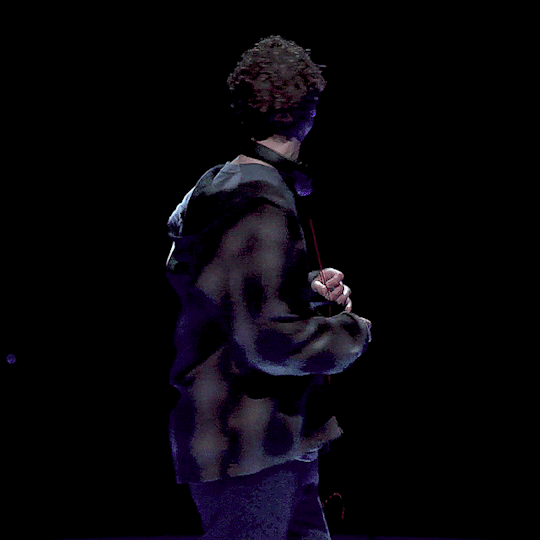
JOSEPH QUINN as LUKE MARBEY | MOSQUITOES (2017)
↳ #small boy. baby. tiny, tiny boy.
#joseph quinn#joe quinn#josephquinnedit#joequinnedit#jqedit#stcastedit#josephquinnsource#theatreedit#theateredit#luke marbey#mosquitoes 2017#*mygifs#useralii#userbanana#userbaby#userkam#usermaguire#usernaysa#userspacey#tusermarissa#tuserbritt#am trying out the larger gif layout. not sure if i hate it or am just not used to seeing my gifs that big once they're public lol#also!! the hand fidgets!! we love an autistic king even if the play never calls him it outright
773 notes
·
View notes
Text
Unhinged vaccine fetishist implies that microbiology is on a political timetable.
John Leake
Dec 05, 2024
On January 11, 2017, Dr. Anthony Fauci gave a talk on pandemic preparedness at Georgetown University in which he stated:
‘No doubt’ Trump will face surprise infectious disease outbreak.
I was reminded of Dr. Fauci’s amazing prescience, less than ten days before Trump was sworn in for his first term, when I saw Dr. Peter Hotez making an unhinged rant in a Dec. 4, 2024 interview with MSNBC’s Nicolle Wallace.
“We have some big picture stuff coming down the pike starting on January 21st,” Hotez proclaimed, and then let us us know all of the emerging infectious diseases that he implied are on a political timetable.
Bird flu
New Coronavirus
SARS
Mosquito-transmitted viruses
Dengue
Zika
Oropouche virus
Yellow fever
Pertussis/Whooping cough
Measles
Polio
As Freud famously remarked, people often reveal their subconscious wishes and fantasies in their word choice. I don’t think I’m speculating too much in drawing the conclusion that Dr. Hotez can’t wait for the U.S. to be afflicted by another plague.
His explicit characterization of January 21 as marking the Advent of various plagues reminds me of the Revelation of John, who imagined that the Roman Empire under Nero, with its tyranny and depravity, would face an ultimate reckoning that would appear in the form of Four Horseman representing Deception, War, Famine, and Pestilence—the final being represented as a pale rider on a white horse.
7 notes
·
View notes
Text
Saltburn Jumanji AU
[rambling compilation]
ok so, i've just rewatched jumanji, all three movies, and i think i'd like to see saltburn with 'welcome to the jungle' (movie, 2017, with jack black and the rest) because it'd be easier to integrate the casts and everything, and because i think there should be more of van pelt in the story, don't you think?
like, felix as spencer, venetia as bethany, farleigh as fridge, maaayyybe annabel as martha (or not, idk yet) and oliver, oh dear oliver would be alex, because it'll be fun, having oliver as the one being stuck in the game for twenty-two years. sure, it works for felix too, but i have something in mind with this arrangement.
the kids got into the game, they got trampled over by rhinos and hippos and whatnot, yadda yadda yadda. then, they met oliver, the pilot (master of the air, hahaha), romance happens, but also misery, because we always need drama and misery for them, don't we?
at the final sequence, we find out that it was all a trap, all along. oliver had been waiting for people to go along the journey, so he can finish the game as well, yes. but it changed the moment he met felix, and was told that he had been stuck in the game for twenty-two years (he came from 2002, felix and the rest from 2024), and realized that even if he got out of this cursed place, there is a risk that he won't be able to see felix. so... why not just stay? he can't say that to the others, though, they'd refuse immediately, even felix. oliver has to make him stay one way or another, make felix see that they should stick together, side by side, with no one else and no way home to ensure that felix would be there with him.
oliver has been working with van pelt, has been reporting the situations to the man as he embarked on the journey with the jumanji team, with felix. we of course got a scene where he was accidentally bit by a mosquito, his weakness in the game, and felix saved him by giving him his life (he didn't lose any heart s the way spencer did because fridge shoved him off the cliff, farleigh can be ruthless but not that heartless). we got a kiss, and oliver cementing his decision to chase after felix because felix had just literally saved his life.
at the end, after the revelation and oliver's realization as well as making the plan for felix to stay, the team went towards the jaguar statue, except this time, instead of going together, they got separated one by one as per oliver's instruction to split up, because of the jaguars running after them and van pelt's men as well. it was a ruse for oliver to orchestrate their death, because they were liabilities and were prone in reminding felix that they have to go home. this way, there will be no reminder, no loved ones, and it will give an illusion of despair in felix's head because he lost his cousin and sister.
at that moment, when felix has reached the top of the statue, ready to receive the jewel for the eye from oliver, the last act of treachery will happen. oliver didn't get him the jewel, instead, he acted like he had been captured by van pelt and the only way to save him was for the jewel to be traded with his life. it's a precarious situation, because at this point, felix has lost one life to save oliver, one from being torn apart by the jaguars because he slipped from the trees, and only one left to risk. and it is risky, because there's no resurrection after this, no more second chance. it's either the jewel or oliver, who also only has one life left.
at the end, looking at oliver's terrified face, the tears streaking down his cheeks, felix gave up the jewel and let van pelt have it. he gets oliver back, crying and apologizing profusely to felix, because he says "it's my fault-- it's my fault felix, i'm so sorry. i shouldn't have told them to split up; should have been more careful with van pelt. now they're dead and we're stuck. we can't go home. i'm so sorry."
felix wants to be angry, of course he does. he lost people close to him and the only chance for him to get out of this god-forsaken universe, to go home. but he can't blame oliver for it (poor, gullible child) and at least... at least this way, he won't be alone, the way oliver had for twenty-two years. at least they have each other, and that should be enough.
even though he has to sacrifice his life; even though he has to let go of the world as he had known it. it's okay, because he'll be with oliver, and they will be all right, even though they'd never, ever make it home.
end. (happily ever after, at least for oliver, because come on, he's been gone for twenty-two years, the least jumanji can do to atone is giving him felix. for now; for eternity.)
#saltburn 2023#saltburn#cattonquick#jumanji#jumanji au#felix catton#oliver quick#headcanon#ramblings
23 notes
·
View notes
Text

joseph quinn rehearsing for mosquitoes (2017)
63 notes
·
View notes
Text
BLOG 1: My Connection With Nature
Hello! My name is Angela, and I’m a third year student majoring in Zoology at the University of Guelph. I’d like to officially welcome you to my blog– I’m excited to start sharing my posts with everyone from here on out.
My relationship with nature is one that I’d consider special in my life. Being outside is nearly like my own sanctuary, a place where I can truly feel at peace. Growing up, although my family mainly lived in urbanized areas, I always felt a connection with the outdoors. My parents often caught me outside playing and running around, and they found pulling me away to be a struggle if I spotted a small critter on evening walks. I like to believe that my love for the outdoors stemmed from my mother, as she was and still is an avid gardener of both vegetables and flowers (so much so that I’ve gotten invested in it now as well!). The flowers would invite insects like butterflies and bees to our backyard, and the vegetables would attract rabbits, squirrels and chipmunks. She would often take my siblings and I out on hikes. My grandpa also taught me a sense of appreciation for the life around us through fishing. These experiences allowed me to grow a deep respect for wildlife and nature and the inner workings of their ecosystems; everything that exists on Earth serves a purpose– even mosquitoes, as annoying as they can be.
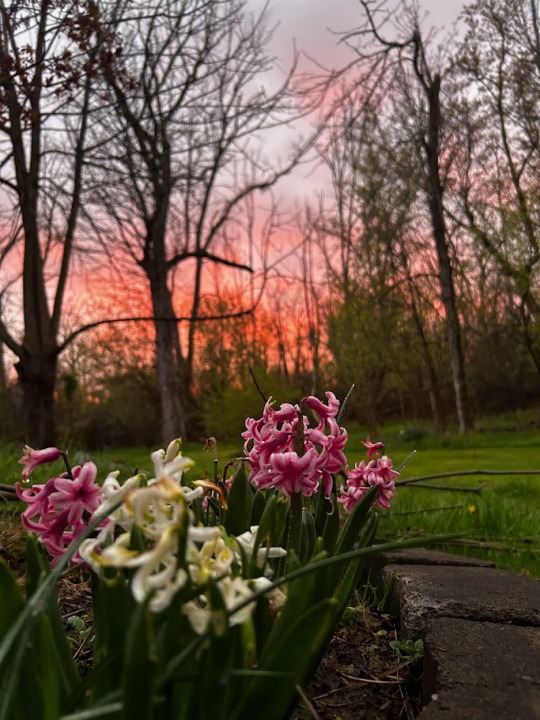
[Pink and white hyacinth pearl flowers backed by a sunset]
I’m privileged enough to have a few areas I’d consider my “sense of place”. My first real exposure to nature was back in 2017 on a trip to Europe with my brother. He took me on a trail that went around Mont. Blanc– the highest mountain in the Alps and Western Europe– and we hiked in the mountains for two weeks. Along the path we met lots of different kinds of people from different countries, but there was one thing that we all shared: a love for nature. As we hiked and chatted with the people we met, there was a sense of community that formed which led to memories that I cherish to this day. The trail took us through a few small towns in the valleys, and through the locals we learned bits of their history, family roots, and what sort of significance the land held for them. It was this particular trip that solidified my admiration for nature and all the things it had to offer.
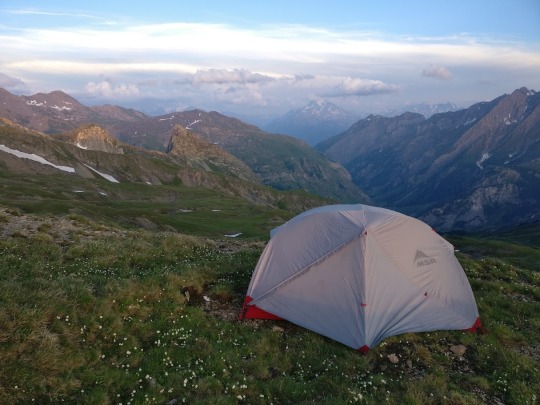
[My brother and I's tent on the top of a mountain in Europe]
Most recently, I found another sense of place in Banff, Alberta. I spent most of my time hiking trails and visiting lakes, learning about the history and significance of the mountains that surrounded me. We were lucky to see a fair amount of wildlife, including deer, elk and mountain goats. One encounter that stuck in my mind was when we encountered a female elk and her baby. There was something so surreal about it, seeing them in the bush gorging away at some leaves. We had just finished stargazing and were right beside a busy highway– seeing a mother and her baby on the side of the road was the last thing that we expected. It reminded me of the simplicity and beauty of life. While in Banff my family and I also visited the Athabasca Glacier; there, we learned that every year it shrinks about 5 meters due to global warming. As an individual I always valued the importance of protecting the state of the natural world, as humans have been negatively affecting the Earth for years. Both of these encounters reinforced in my mind how important conservation and preservation is to nature and the future generations.
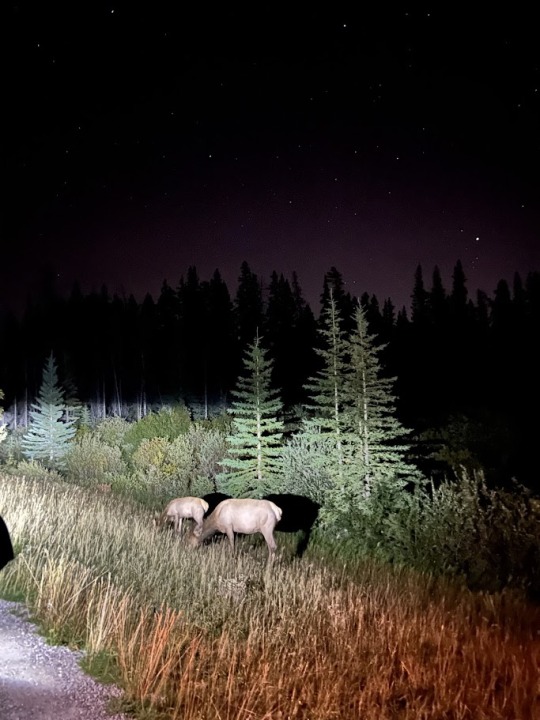
[Picture of a female elk and her calf under a starry sky]
In the end, my relationship with nature developed from one of simple curiosity and fascination to one of admiration and respect, connected with a drive to protect the environment. While I've said that my "sense of place" is mostly with the outdoors, the people who gave me that sense of place would most definitely be my mom, grandpa and brother.
8 notes
·
View notes
Text
the wolf and the moon
Turn: Washington's Spies || Caleb Brewster/Benjamin Tallmadge || unspecified fantasy/magic AU ao3 link eng || this was first written and published on ao3 in Russian in 2017 but I didn’t attempt to translate it into English back then.
You must not be afraid of the changes that I've made
I have come now to bring you away
To our bed that I have made with the seven stones I've laid
And covered in the finest of clay
Lay your head upon the ground, you shall never be found
I will guard against dangers that be
Until dawn comes around you must not make a sound
And I swear you will forever be with me
(Birch Book – Werewolf’s Eyes)
Looking back, Ben is utterly angry at himself for not catching on to what was happening to him until it was too late.
First he notices all smells become sharper. Gunpowder, sweat, horse dung, damp earth, campfire smoke, hair pomade. Hundreds of smells that were not as distinct before surround him in a smothery cloud that seems dense enough to spoon it up like fat broth. Ben frowns, dizzy with this suffocating mixture, and steals furtive glances at the others, trying to find out if they feel the same, but everyone is acting like everything’s normal. He does not dare to ask, suspecting how strange that would sound. The other officers keep their guard up with him as it is – sure, he’s well-mannered and all, but still, heaven knows what to expect from those magicians.
On the last night before the full moon, he blows out a candle in his tent, and suddenly realizes he can see perfectly in the dark. Then he begins to understand – although just what, not how. If he was bitten, he would have remembered it – or would he not? Leave it to Rogers and his men to wipe out his memories. Everyone knows his unit is made up of only those endowed with at least middling witchcraft powers. It is for this reason that much later Ben is so surprised to find out that Jordan – that is, Akinbode – has joined the ranks of Rangers. It is odd and upsetting to know that all those years someone else in Setauket was able to do magic apart from the four of them, and they had not the slightest idea.
It might be that the bayonet he was wounded with was soaked in something. Werewolf’s blood? Werewolf’s saliva? The next day, Ben all but runs to his tent each time he has a minute to spare and leafs through his papers frantically, his own notes and torn-out book pages alike. His command of sorcery is much poorer than imagined by most people in their army, Washington included. Compared to those who couldn’t even deal with a simple spell, he’s a magician indeed. In truth, however – and being aware of it has never made him feel as dejected before – he’s just another self-taught amateur. If what is happening to him is exactly what all the evidence suggests, then he is helpless. All he can do is steal out of the tent when it gets dark and the moon’s silver disk starts to glisten behind the clouds, and rush towards the forest. He manages to put on a smoke-and-mirrors spell so that no one notices he’s gone; at least he’s good enough for such trifles.
He makes it to the woods in time – as soon as he steps into the thicket, he convulses with excruciating pain. A bayonet is like a mosquito bite compared to that; worse, finishing off his brother in arms so as not to give himself away in front of Rogers and his band of warlocks is like a mosquito bite compared to that. It feels as if huge invisible hands are kneading him like dough and sculpting his flesh and bones into something else, ugly and unnatural. Ben struggles to keep his mouth shut, but he still screams.
Then he howls.
Then he’s racing through the woods surrounded by thousands of smells, which don’t seem as obnoxious as before, and he feels good – as good as never before, especially compared to that terrible pain earlier. The moss is springy under his paws and the air is fresh, and the blood of the hare he caught is hot and tastes better than any food he’s ever tried. There is no trace of the fear that has weighed down on him that entire day. How could he be afraid of this?
But when he wakes up at dawn in the depths of the forest completely naked, shivering with cold, his human face smeared with blood, the fear returns.
And the night after it proves itself justified.
***
After the second night, Ben returns to the camp, slips into his tent, falls down on his knees and howls and howls more than he did at night in honour of the full moon.
He has only vague memories of what happened. A dark silhouette sneaking through the woods. A jump, a loud cry, the cracking of neck vertebrae. A blue uniform torn to pieces. A warm throat in his maw. All of it blurred, befuddling; an unpleasant dream right before waking up. But what he saw in the morning he remembers clearly – and will never forget.
He’s not throwing up. He’s choking on tears, he’s shaking with disgust, but he’s not throwing up at all. God, why isn’t he throwing up from the thought of having gorged himself of human flesh last night?
Ben forces himself to get up. His body moves as if by itself – and is it his own anymore, really? Or is the only body he inhabits now that of a wolf, for which that nightmare is just another hunt, and not the most heinous crime imaginable? He keeps looking around the tent dully, until he understands that the thing he needs, the only thing that can save him and the others, is already at hand.
He cocks the pistol and puts it to his temple.
“No!”
An unseen force wrenches the pistol from his hand and throws it into the corner. A shot rings out – in vain.
“You shot a hole through my wall,” Ben says, tired. He doesn’t turn around; he can’t look Caleb in the eye, not after what he did last night. But Caleb is beside him in a blink of an eye, grabs his hand painfully, and makes him turn around – and then he has to look.
Ben isn’t sure he’s ever seen Caleb in such rage before.
“Screw you, Tallboy,” Caleb spits out wrathfully, looking up at him. “Have you lost your mind? What the hell was that?!”
“I can’t tell you that.”
“Yeah, ‘cause it’s easier just to blow your brains out, right? Ben,” the tone of his voice changes, and so does his look, and now Caleb is looking at him with a desperate plea and fear and concern, and Ben wants to push him away and shout at him leave, I don’t deserve this, I don’t deserve a single drop of your worry, leave. “What’s going on?”
Ben wants to push him away – and yet he cannot.
“You’re going to hate me if I tell you.”
“No,” Caleb says firmly.
That’s what I fear, Ben thinks.
When he comes to the part about him killing someone – no, not just killing but half-devouring him, tearing him to pieces to the point of barely being able to make out the face in the morning, not a familiar one yet still striking horror and grief into him – he realizes he’s crying again. Ben wipes off his tears with his sleeve violently, hoping that Caleb doesn’t think he’s asking for pity. Pity he does not deserve. All he deserves is the pistol, now picked up off the ground and lying on the table, in wait for its hour. Ben knows what he’s going to ask of Caleb when he finishes his story. Ben is tormented by an almost complete certainty that Caleb will refuse him.
“We-e-ell,” drawls out Caleb when Ben is done. He was listening with uncharacteristic sobriety, but with no apparent fear, and that is wrong. He ought to be scared. “What was that poor devil even doing in the woods at night…”
“Caleb, what’s the difference?”
“Was he tryin’ to desert or what?”
“What. Is. The difference?” Ben draws back and stares at his friend with outrage. “What of it if he was? Even had it been a redcoat – Caleb, I bit a man to death! Tore out his throat like he was a rabbit!”
“Hush,” Caleb raises up both hands as if trying to shield himself from Ben’s voice. “Quit yelling. Here, drink,” he fishes a flat flask of Madeira out of the inside pocket of his coat, and pushes it into Ben’s hands.
“Right,” he begins as Ben drinks, gagging and coughing. “So we have to figure out what to do with that trouble of yours.”
“I’ve already figured everything out, and I was trying to do just that, until you barged in.”
“And thank God I did! Ben, I won’t let you kill yourself!”
“Then you will have to kill me,” Ben retorts, and takes the pistol from the table. “In the woods, now. Let’s go.”
Caleb stares at him in horror.
“No.”
“Lieutenant Brewster,” Ben raises his voice and holds the pistol out to Caleb, “that’s an order!”
Caleb takes the pistol and throws it aside – not by magic this time, but simply by hand.
“Stick your orders where the sun don’t shine, Captain,” he replies, his chin defiantly up. “Listen to me. We’re both magicians, right? We’ll figure it out and no one will have to shoot anyone. I’ll figure it out.”
Ben is silent. He’s scared of death, because he knows for sure he’ll go to hell – a magician, even though the church has a complex stance on magic; a killer, even though everyone kills at war; a werewolf, even though not of his own volition; a sodomite, even though he hasn’t ever dared to proposition anyone. He hates himself for this weakness, but he really is scared, man and wolf inside him alike. Besides, the army needs him, Washington needs him, his friends whom he dragged into another risky business need him. Of course he would prefer to stay alive – but he doesn’t see any conditions under which it is possible without subjecting others to mortal peril.
“Trust me,” Caleb says quietly, resolutely. He stares at Ben, imploring him with his warm, always so endlessly warm eyes, and Ben gives up.
***
At night, Ben returns to the forest, and the wolf returns home.
He throws off the scruples of conscience together with his former appearance. Only a tiny part remains, caught on that scrap of human sentience that still remains with him. That scrap causes him pain, but it also brings him hope – hope that strong as the wolf might be, it cannot beat Benjamin Tallmadge. He’s still here, with his guilt and his fear and his remorse, and he has no intention to leave this head.
But the wolf’s hunger is strong, and now, when the wolf has already partaken of human flesh, it’s all the more dangerous.
The camp is asleep. Only the sentries are walking to and fro, small figures barely distinguishable from the edge of the woods. Ben – no, the wolf, that’s all wolf – looks at them and makes a step forward.
A noise behind his back makes him turn around.
It’s a bear. Not the biggest there is, but undoubtedly still bigger than him. Ben bares his fangs, but is in no hurry to run away. It is the first time he sees this bear, the first time he sees any bear, but this one smells like something very familiar, something like home, and for the wolf it is enough not to be afraid of it.
The bear approaches him, extends a foreleg the way a person would extend a hand to point at something, and growls as if calling him somewhere. Ben turns to look at the sentries again.
The bear growls louder and gently nudges him with its paw, and Ben gives up.
Together they disappear deep into the woods, and then they hunt down a big deer, and its meat tastes almost as good as the meat of that young man – deserter or not – that Ben recently murdered.
When Ben wakes up as a man, he realizes two things. The first is that at night he managed to return closer to the camp, because the gnarled oak under which he’s lying is well familiar to him.
The second is that someone’s lying by his side, hugging him at the small of his back.
Ben detaches himself, pushing off the hugging arm, and sits up abruptly.
“Caleb,” and of course it’s Caleb, naked and muddy like him, with leaves and tiny twigs in his hair and beard. “Caleb, wake up!”
“Why are you yellin’, why d’ya always have to yell?” Caleb mutters drowsily, and bats Ben’s hand away when Ben tries to shake him by the shoulder. At last he opens his eyes and sits up too. “Morning, Benny.”
“Morning?” Ben is positively at a loss. He certainly doesn’t like the most obvious explanation – that is, that Caleb followed him through the woods last night, at the risk of being mauled by a beast that does not care who Benjamin Tallmadge’s closest childhood friends are. “Caleb, how did you get here? How did you find me? Did you go after me last night or what?”
“Yeah,” Caleb shrugs, stretches, and gets up, and Ben does his utmost to look away. Caleb pulls clothes, his own and Ben’s, from a hole beneath the oak roots, and throws him his shirt. “Spent all night with you, don’t you remember?”
When it dawns upon Ben, he is halfway through putting his shirt on, and his sudden shudder almost results in him tearing it.
“You’re out of your mind,” he hisses, leaps to his feet too, and grabs Caleb by the shirt. If someone catches them like that – away from the camp, scantily clad – it won’t be easy to explain themselves, but this is not what he’s worried about at present. “I thought you promised to figure out how to stop the wolf!”
“And I did,” Caleb replies nonchalantly, struggling to pry Ben’s fingers away from his sleeve.
“By becoming the same thing as I?!”
“I’m not the same thing, Ben! You were turned, I turned myself. You become a wolf, I keep a man’s mind in a bear’s body. A curious ritual, I learned about it in Canada,” Caleb covers his hand with his own and grins with delight. “Was eager to try it out for some time, see if I could handle it.”
Ben could say a lot about Caleb’s flippant attitude towards magic, but he has long understood that in some cases, it is no use wasting his breath.
“And how is this going to help up?” is all he asks.
Caleb smiles. Every time it gives him laughter lines; this mirth is going to make him all wrinkles when he grows old.
“Weren’t you lickin’ your lips at the sentries last night? But you didn’t go to them. You went with me. I’m stronger and bigger, I can hold you back if needed,” he gives Ben’s shoulder a friendly slap. “As long as I’m with you, you won’t hurt anybody.”
No, thinks Ben, but if neither you nor I are strong enough to resist our respective beast, there will be even more victims.
***
Strange as it may be, it works out. From one full moon to another, their lives are nearly the same as before – the military affairs, the spy ring business, magic-related or not. The bear guards the wolf against hunting in the camp of the Continental Army. Lieutenant Brewster guards Captain – now Major – Tallmadge against going mad with self-loathing and self-abhorrence.
Nathaniel Sackett, a seasoned magician, gets to the bottom of it at once.
“You need a suitable amulet, young man,” he says, looking over Ben with the curiosity of a scientist who has caught a peculiar bird. “Then it will be easier for you to control yourself. You’ll even be able not to depend on the full moon and transform whenever it is convenient for you. Like your friend here.”
“Convenient?” Ben echoes, frowning. “It will never be ‘convenient’ for me, sir. It is not about my convenience, but about the safety of others.”
“But you could be useful on the battlefield in this, hmm, capacity.” Sackett doesn’t seem to notice Ben’s indignation. “Haven’t it occurred to you?”
“No,” lies Ben.
Sackett clicks his tongue. “I’ll see what could be done.”
“He’s insane,” whispers Ben in frustration, when Sackett leaves to meet Washington.
Caleb shrugs. “All magicians are a bit out there,” he points out philosophically. “Just look at the two of us. Though we clearly have a long way to go compared to him.”
“Oh, it’s all fun to you, isn’t it? You furry blockhead.”
“No furrier than you,” Caleb replies good-naturedly.
If it was not for his cheerful nature and eternal unshakeable faith in them being able to get through it all, the wolf would have long gnawed down Benjamin Tallmadge’s soul.
***
The amulet that Sackett hands him looks like a flower or an open pine cone – petals made of different species of wood, and a silver core.
“Put it around your neck on the full moon. And don’t you dare take it off even if it hurts. And it will hurt,” he instructs. “Concentrate on the memories of home, family, friends, loved ones – everything that makes you human. Brewster shall watch over you. I believe it sensible for him to do that in his bear form, to be on the safe side.”
“Thank you, sir,” Ben says ardently as he takes the pendant.
The first night of the full moon, he doesn’t succeed. The amulet hurts him indeed – like pressing a hot iron to his chest. Ben musters all his strength, but in the end he cannot bear it, and tears the pendant off. On his chest, a red print remains. That night he howls at the moon desperately, and Caleb lies in a pit and watches him and waits patiently for him to cry it all out.
The following night, Caleb ties him to a tree.
“Are you sure?” he asks for the last time.
Ben snarls.
The moon comes out, and the amulet bites into his skin, into the still-raw yesterday’s burn. Caleb shucks off his clothes and shapeshifts. Ben still cannot get used to how awful the transformation appears to an onlooker – the body mashed and spread and bent, the limbs twisting unnaturally, the fur growing out in an instant. Ben is well familiar with the kind of pain Caleb is experiencing, but even it seems like nothing compared to the one caused by the amulet.
Sackett told him: when he subdues the wolf, the pain will cease.
Sackett told him: keep thinking of what makes you human.
Through pain, Ben reminisces his father and his late mother, his brothers, their sweet old house and the neat small church in Setauket. The memories of home seem like the memories of a past life; none of this exists anymore. The British soldiers sit in their church. Samuel is dead. Nathan, whom he also reminisces, whom he could never forget, is dead as well.
The silver burns his skin, the tree bark scratches even through the shirt, and the wolf inside him howls in pain. It is hard to focus on anything but pain, yet he tries.
Father. Abe. Anna. Washington.
Happy New Year, Tallboy.
Caleb, his sleepy smile, the warmth by his side, the arm on his waist.
I won’t let you kill yourself.
Ben screams until he suddenly realizes that the pain has passed. The bear lying next to him raises his head and nuzzles against his thigh.
The night after, he stares at the moon with human eyes, the amulet pleasantly cooling his chest.
***
Little by little, he learns – not only to trap the beast inside, but also to let it out when it is his own wish, not that of the skies above. When the moon isn’t full, the hunger isn’t as strong, and he need not fear that his feet – his paws – would bring him to the camp; not that Caleb would let that happen, anyway. What he is the most afraid of is losing the amulet in the thicket; he keeps Sackett’s notes, in which it is explained, among other useful things, how to make one, but that would require a long time and a variety of materials that would be hard to come by.
Little by little, he learns to accept that he likes it – the quiet of the woods, the moonlight, the wind singing in his ears, the delicious night air, clear as spring water. The thrill of the hunt and the lazy bliss of fullness. Falling asleep with his nose pressed into the coarse brown fur; waking up with his cheek pressed against Caleb’s chest. Something completely unthinkable and still completely natural, as if someone decided way before they were born that they would sleep best like that – nestled up to each other, not a scrap of clothes between them, the all-forgiving starlight above.
Sometimes Ben is grateful to Rogers for cursing him.
Once, having woken up at sunrise, he goes through the memories of the past night – now that his animal form is subject to the amulet, it is much easier to restore them. They killed a deer and feasted on the hot meat, and then fell down to the ground, sated and tired. The bear tumbled on his back spread-eagle, rolling about funnily and flattening the moss. The wolf climbed on top of him and nipped at his nose. Both had snouts and paws covered in blood, and they licked each other for a long time, played like pups, until the wolf fell asleep and the bear must’ve fallen asleep after him.
Ben, having carefully disentangled himself from Caleb, gazes at him and thinks absentmindedly that the dark hair on his chest and belly looks like animal fur. And that the wolf has already fallen asleep, retreated into the farther corner of his mind, and yet he still wants to lick.
Ben has no idea if beasts are prone to the same sin as some men, including him, but he knows that a wolf cannot and would not think of mating with a bear. The shade their night-time games acquire in his eyes does not come from the wolf, which cannot tell right from wrong. It comes from Benjamin Tallmadge, reverend’s son, the honorary virgin of the entire Continental Army, who’d rather die than admit why he never joined his fellows on a visit to a brothel. He remembers Caleb telling him that the ritual lets him keep a human mind in a beast’s body. Ben is not sure it is still so; Caleb turned without him present several times, stayed alone with the bear, and sometimes Ben worries that confident in his power, he might succumb to his second nature entirely. Still, what Ben would like to know most of all is what Caleb the bear, or Caleb the man in a bear’s frame, thought when he ran his rough tongue over Ben’s belly.
He daren’t ask, but in the evening, when they already can sleep peacefully in the camp because the moon has begun to wane, he comes to Caleb’s tent. The candle is blown out, but Caleb, who is now able to see in the dark perfectly well, like Ben, is still awake.
“Tallboy, what is it?” Caleb asks anxiously when Ben enters and carefully closes the tent flaps. “Has something happened?”
Ben steps up to him, heart beating so wildly as if it is going to break out of his body, and tilts his head to lick Caleb’s neck, animal-like, and then kisses him on the lips, as people do.
Caleb sighs loudly, his eyes closed, and leans to kiss him back.
He growls, leaning on Ben with all his weight on the cot too narrow for two, and Ben bites Caleb’s shoulder when he comes, but apart from that they have no reason to blame all that on the animals in their heads.
That night, Ben presses his snout – no, his face – to Caleb’s neck, and sleeps even more soundly than in the open air.
***
Gradually, the truth comes out. Not all of it, fortunately; not about the two of them. And not about Ben, in contrast to Caleb, being turned against his will, not being able to control the beast at first, and tearing a fellow soldier to pieces on top of that. Everyone believes Ben made the decision to turn in order to become a more dangerous foe to the British army. Washington thinks so. Everyone thinks so. Ben is in no hurry to change their minds.
On the battlefield, both of them are of more use on two feet, with weapons and spells ready, but a couple of times, when ambush is required, they face the enemy in their other bodies. This is enough for the British to start talking about them. As Ben learns from Townsend, casting a spell to communicate with him through a bowl of water (at the end of the conversation, Townsend, icily polite, asks him if he could henceforth warn him somehow before appearing in his washbasin – if it is not too much trouble, of course), the blue-eyed wolf even gains some grand nicknames in the enemy camp. The General’s Cerberus, Washington’s Hellhound. The fact that Ben, lofty manner notwithstanding, is still considered to be a dog is insufferably amusing to Caleb. The latter, however, is not accorded anything more sophisticated than the Shaggy Devil or the Hairy Devil or similar variations on the theme of the devil and bears. Ben likes to respond to Caleb’s dog-related teasing by saying that Caleb’s human appearance is as deserving of these names as the animal one, if not more.
In the camp, they’re respected, yet given a wide berth – both of them, even the ever jovial Caleb, and that continues when Anna joins them. The soldiers are intrigued by her, but also intimidated – which is not unwise, to be fair, considering she’s always been the most skilled magician among the four of them. Washington’s coven, soldiers whisper. A witch and two warlocks – only Abe is missing from the set.
Ben is glad Anna is with them – not just because he needn’t worry she might get in trouble away from her friends, but also because they need a safeguard. He’s reached an understanding with his wolf, and Caleb has been in tune with his bear from the start, but at the end of the day they are still wild beasts. He makes Anna a copy of the instruction on how to make the amulet from Sackett’s notes, and tells her to always keep a pistol with at least two silver bullets at hand to stop him or Caleb if worst comes to worst. Or (he doesn’t say that, though) to stop Caleb first and then, regardless of circumstances, him. An amulet is an amulet, but Ben cannot shake off the feeling that the lion’s share of his control over the beast is tied to Caleb’s presence.
He has heard somewhere that wolves mate for life anyway.
“I just hope I won’t have to use it,” says Anna with a sad smile, accepting the pistol.
“You won’t have to,” Caleb says with confidence and hugs her by the shoulders. “It’ll be alright.”
Ben looks at them, and the wolf in his head curls up snugly and falls asleep.
#more old stuff. this time it's the last i think#does it count as cannibalism if a werewolf eats a person while being a wolf? asking for a friend#turn amc#turn#turn: washington's spies#tallster#ben tallmadge#caleb brewster#my fic#gella talks turn#talk talk talk#this fic is so much sillier than i remember. no research just vibes. but i started translating it so i had to finish
12 notes
·
View notes
Note
hi! SUPER interesting excerpt on ants and empire; adding it to my reading list. have you ever read "mosquito empires," by john mcneill?
Yea, I've read it. (Mosquito Empires: Ecology and War in the Greater Caribbean, 1620-1914, basically about influence of environment and specifically insect-borne disease on colonial/imperial projects. Kinda brings to mind Centering Animals in Latin American History [Few and Tortorici, 2013] and the exploration of the centrality of ecology/plants to colonialism in Plants and Empire: Colonial Bioprospecting in the Atlantic World [Schiebinger, 2007].)
If you're interested: So, in the article we're discussing, Rohan Deb Roy shows how Victorian/Edwardian British scientists, naturalists, academics, administrators, etc., used language/rhetoric to reinforce colonialism while characterizing insects, especially termites in India and elsewhere in the tropics, as "Goths"; "arch scourge of humanity"; "blight of learning"; "destroying hordes"; and "the foe of civilization". [Rohan Deb Roy. “White ants, empire, and entomo-politics in South Asia.” The Historical Journal. October 2019.] He explores how academic and pop-sci literature in the US and Britain participated in racist dehumanization of non-European people by characterizing them as "uncivilized", as insects/animals. (This sort of stuff is summarized by Neel Ahuja, describing interplay of race, gender, class, imperialism, disease/health, anthropomorphism. See Ahuja's “Postcolonial Critique in a Multispecies World.”)
In a different 2018 article on "decolonizing science," Deb Roy also moves closer to the issue of mosquitoes, disease, hygiene, etc. explored in Mosquito Empires. Deb Roy writes: 'Sir Ronald Ross had just returned from an expedition to Sierra Leone. The British doctor had been leading efforts to tackle the malaria that so often killed English colonists in the country, and in December 1899 he gave a lecture to the Liverpool Chamber of Commerce [...]. [H]e argued that "in the coming century, the success of imperialism will depend largely upon success with the microscope."''
Deb Roy also writes elsewhere about "nonhuman empire" and how Empire/colonialism brutalizes, conscripts, employs, narrates other-than-human creatures. See his book Malarial Subjects: Empire, Medicine and Nonhumans in British India, 1820-1909 (published 2017).
---
Like Rohan Deb Roy, Jonathan Saha is another scholar with a similar focus (relationship of other-than-human creatures with British Empire's projects in Asia). Among his articles: "Accumulations and Cascades: Burmese Elephants and the Ecological Impact of British Imperialism." Transactions of the Royal Historical Society. 2022. /// “Colonizing elephants: animal agency, undead capital and imperial science in British Burma.” BJHS Themes. British Society for the History of Science. 2017. /// "Among the Beasts of Burma: Animals and the Politics of Colonial Sensibilities, c. 1840-1940." Journal of Social History. 2015. /// And his book Colonizing Animals: Interspecies Empire in Myanmar (published 2021).
---
Related spirit/focus. If you liked the termite/India excerpt, you might enjoy checking out this similar exploration of political/imperial imagery of bugs a bit later in the twentieth century: Fahim Amir. “Cloudy Swords” e-flux Journal Issue #115. February 2021.
Amir explores not only insect imagery, specifically caricatures of termites in discourse about civilization (like the Deb Roy article about termites in India), but Amir also explores the mosquito/disease aspect invoked by your message (Mosquito Empires) by discussing racially segregated city planning and anti-mosquito architecture in British West Africa and Belgian Congo, as well as anti-mosquito campaigns of fascist Italy and the ascendant US empire. German cities began experiencing a non-native termite infestation problem shortly after German forces participated in violent suppression of resistance in colonial Africa. Meanwhile, during anti-mosquito campaigns in the Panama Canal zone, US authorities imposed forced medical testing of women suspected of carrying disease. Article features interesting statements like: 'The history of the struggle against the [...] mosquito reads like the history of capitalism in the twentieth century: after imperial, colonial, and nationalistic periods of combatting mosquitoes, we are now in the NGO phase, characterized by shrinking [...] health care budgets, privatization [...].' I've shared/posted excerpts before, which I introduce with my added summary of some of the insect-related imagery: “Thousands of tiny Bakunins”. Insects "colonize the colonizers". The German Empire fights bugs. Fascist ants, communist termites, and the “collectivism of shit-eating”. Insects speak, scream, and “go on rampage”.
---
In that Deb Roy article, there is a section where we see that some Victorian writers pontificated on how "ants have colonies and they're quite hard workers, just like us!" or "bugs have their own imperium/domain, like us!" So that bugs can be both reviled and also admired. On a similar note, in the popular imagination, about anthropomorphism of Victorian bugs, and the "celebrated" "industriousness" and "cleverness" of spiders, there is: Claire Charlotte McKechnie. “Spiders, Horror, and Animal Others in Late Victorian Empire Fiction.” Journal of Victorian Culture. December 2012. She also addresses how Victorian literature uses natural science and science fiction to process anxiety about imperialism. This British/Victorian excitement at encountering "exotic" creatures of Empire, and popular discourse which engaged in anthropormorphism, is explored by Eileen Crist's Images of Animals: Anthropomorphism and Animal Mind and O'Connor's The Earth on Show: Fossils and the Poetics of Popular Science, 1802-1856.
Related anthologies include a look at other-than-humans in literature and popular discourse: Gothic Animals: Uncanny Otherness and the Animal With-Out (Heholt and Edmunson, 2020). There are a few studies/scholars which look specifically at "monstrous plants" in the Victorian imagination. Anxiety about gender and imperialism produced caricatures of woman as exotic anthropomorphic plants, as in: “Murderous plants: Victorian Gothic, Darwin and modern insights into vegetable carnivory" (Chase et al., Botanical Journal of the Linnean Society, 2009). Special mention for the work of Anna Boswell, which explores the British anxiety about imperialism reflected in their relationships with and perceptions of "strange" creatures and "alien" ecosystems, especially in Aotearoa. (Check out her “Anamorphic Ecology, or the Return of the Possum.” Transformations. 2018.)
And then bridging the Victorian anthropomorphism of bugs with twentieth-century hygiene campaigns, exploring "domestic sanitation" there is: David Hollingshead. “Women, insects, modernity: American domestic ecologies in the late nineteenth century.” Feminist Modernist Studies. August 2020. (About the cultural/social pressure to protect "the home" from bugs, disease, and "invasion".)
---
In fields like geography, history of science, etc., much has been said/written about how botany was the key imperial science/field, and there is the classic quintessential tale of the British pursuit of cinchona from Latin America, to treat mosquito-borne disease among its colonial administrators in Africa, India, and Southeast Asia. In other words: Colonialism, insects, plants in the West Indies shaped and influenced Empire and ecosystems in the East Indies, and vice versa. One overview of this issue from Early Modern era through the Edwardian era, focused on Britain and cinchona: Zaheer Baber. "The Plants of Empire: Botanic Gardens, Colonial Power and Botanical Knowledge." May 2016. Elizabeth DeLoughrey and other scholars of the Caribbean, "the postcolonial," revolutionary Black Atlantic, etc. have written about how plantation slavery in the Caribbean provided a sort of bounded laboratory space. (See Britt Rusert's "Plantation Ecologies: The Experiential Plantation [...].") The argument is that plantations were already of course a sort of botanical laboratory for naturalizing and cultivating valuable commodity plants, but they were also laboratories to observe disease spread and to practice containment/surveillance of slaves and laborers. See also Chakrabarti's Bacteriology in British India: laboratory medicine and the tropics (2012). Sharae Deckard looks at natural history in imperial/colonial imagination and discourse (especially involving the Caribbean, plantations, the sea, and the tropics) looking at "the ecogothic/eco-Gothic", Edenic "nature", monstrous creatures, exoticism, etc. Kinda like Grove's discussion of "tropical Edens" in the colonial imagination of Green Imperialism.
Dante Furioso's article "Sanitary Imperialism" (from e-flux's Sick Architecture series) provides a summary of US entomology and anti-mosquito campaigns in the Caribbean, and how "US imperial concepts about the tropics" and racist pathologization helped influence anti-mosquito campaigns that imposed racial segregation in the midst of hard labor, gendered violence, and surveillance in the Panama Canal zone. A similar look at manipulation of mosquito-borne disease in building empire: Gregg Mitman. “Forgotten Paths of Empire: Ecology, Disease, and Commerce in the Making of Liberia’s Plantation Economy.” Environmental History. 2017. (Basically, some prominent medical schools/departments evolved directly out of US military occupation and industrial plantations of fruit/rubber/sugar corporations; faculty were employed sometimes simultaneously by fruit companies, the military, and academic institutions.) This issue is also addressed by Pratik Chakrabarti in Medicine and Empire, 1600-1960 (2014).
---
Meanwhile, there are some other studies that use non-human creatures (like a mosquito) to frame imperialism. Some other stuff that comes to mind about multispecies relationships to empire:
Lawrence H. Kessler. “Entomology and Empire: Settler Colonial Science and the Campaign for Hawaiian Annexation.” Arcadia (Spring 2017)
No Wood, No Kingdom: Political Ecology in the English Atlantic (Keith Pluymers)
Archie Davies. "The racial division of nature: Making land in Recife". Transactions of the Institute of British Geographers Volume 46, Issue 2, pp. 270-283. November 2020.
Yellow Fever, Race, and Ecology in Nineteenth-Century New Orleans (Urmi Engineer Willoughby, 2017)
Pasteur’s Empire: Bacteriology and Politics in France, Its Colonies, and the World (Aro Velmet, 2022)
Tom Brooking and Eric Pawson. “Silences of Grass: Retrieving the Role of Pasture Plants in the Development of New Zealand and the British Empire.” The Journal of Imperial and Commonwealth History. August 2007.
Under Osman's Tree: The Ottoman Empire, Egypt, and Environmental History (Alan Mikhail)
The Herds Shot Round the World: Native Breeds and the British Empire, 1800-1900 (Rebecca J.H. Woods, 2017)
Imperial Bodies in London: Empire, Mobility, and the Making of British Medicine, 1880-1914 (Kristen Hussey, 2021)
Red Coats and Wild Birds: How Military Ornithologists and Migrant Birds Shaped Empire (Kirsten Greer, 2020)
Animality and Colonial Subjecthood in Africa: The Human and Nonhuman Creatures of Nigeria (Saheed Aderinto, 2022)
Imperial Creatures: Humans and Other Animals in Colonial Singapore, 1819-1942 (Timothy P. Barnard, 2019)
Biotic Borders: Transpacific Plant and Insect Migration and the Rise of Anti-Asian Racism in America, 1890-1950 (Jeannie N. Shinozuka)
#ecology#bugs#multispecies#landscape#indigenous#haunted#temporal#colonial#imperial#british entomology in india#mosquitoes#carceral#tidalectics#intimacies of four continents#carceral geography#pathologization
87 notes
·
View notes